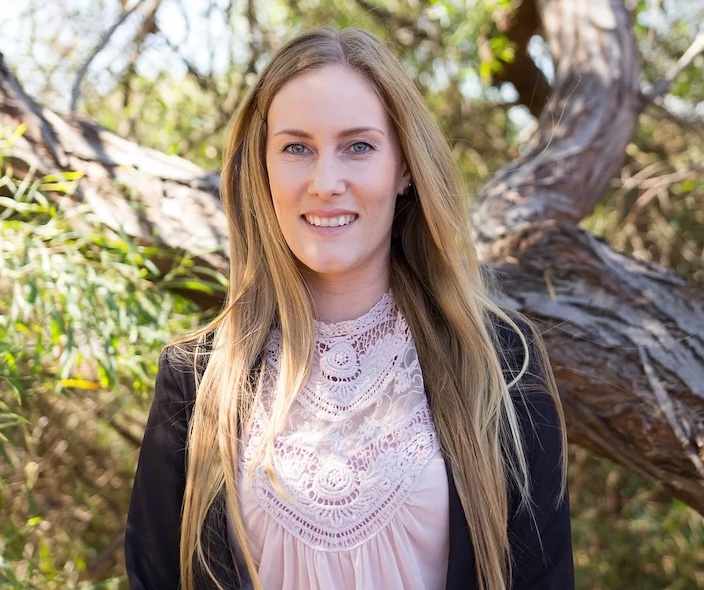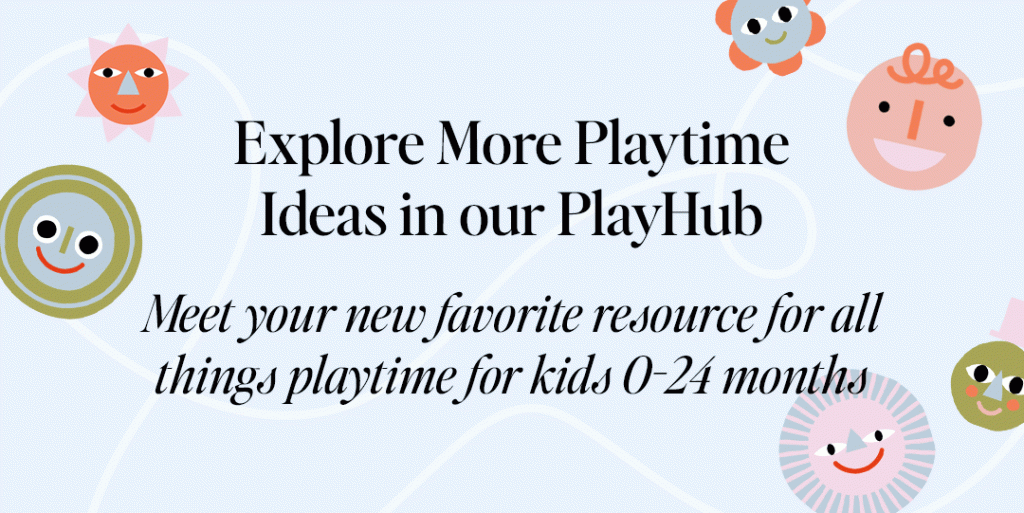The first year of our little ones’ lives is one of the most rewarding, challenging, and beautiful of them all. As we navigate life with a newborn, we face new trials and depths of joy like we’ve never experienced before. We learn what it feels like to be exhausted and fulfilled at the same time, and how to truly love someone unconditionally.
With all these new experiences and challenges comes a lot of trial and error and figuring things out as we go. There are things we as parents can do within our baby’s first year to help them grow to become strong, emotionally intelligent, and resilient later in life. One of the best and most enjoyable ways to do that is through play time. As new parents, it can be difficult to know the best way to incorporate play into our daily routine. Many of us feel pressure to do things the “right” way. The good news is play time doesn’t have to be elaborate and we can do it throughout the day in smaller, more manageable increments. And when we do, the smile that we see on our baby’s face makes all the effort more than worth it.
To learn more about the importance of play, including how much we should be playing with our babies per day and the best way to engage in play time with our little ones, we looked to two experts. Marielle Marquez, a Pediatric Occupational Therapist, shared some of the benefits of play for baby’s physical development. Rachel Tomlinson, a Registered Psychologist, also shared some of the psychological benefits of play time. Read on to see the many ways play can impact the wellbeing of our little ones.


The Benefits of Play Time for Babies
It’s no secret that play time is enjoyable for kids, and the effects of joy on mental health are enough alone to convince us that play time is important. But it may not be as commonly known that regular play time can also benefit babies on a physical and psychological level.
There’s an abundance of psychological benefits alone Tomlinson was able to touch on. She shared, “Children learn about their world through play. They not only learn social skills or understand the relationships that exist around them (including the most important relationship with their caregiver), but they also learn how things work.” She explained that when babies explore by putting things in their mouths, listening, and watching things, they build resilience, self esteem, and fine and gross motor skills. Play also enhances their creativity, imagination, and emotional intelligence.
Children learn about their world through play.
Along with psychological effects, play can also be the motivation babies need to do movements that will develop their motor skills. “Babies are driven to play and much of what they learn is through playing,” said Marquez. She explained that babies tend to learn to do things like roll over and crawl because they see something they want to explore. When playing with different sized objects, they will develop different grasp patterns. Marquez believes that play is motivation for babies to do difficult things like tummy time and sitting up on their own that will develop their abilities over time.
Bonding During Play Time
Not only is play time fundamental for a baby’s development, it also offers a great bonding experience between baby and their caregiver that can have lasting effects on the baby’s wellbeing. Tomlinson touched on the idea of creating a ‘secure attachment’ style within our little ones through bonding. According to Talkspace, an online therapy company, developing a secure attachment style in childhood can lead to an adult who has increased self esteem, more long-term healthy relationships, and increased ability to trust others.
Tomlinson also shared that caregivers can foster a secure attachment style through the bonding that takes place during play. “When caregivers spend time connecting and engaging with their child it helps the child feel seen and acknowledged which provides them with a safe base,” she said. Providing a safe space for children to explore allows them to grow their independence and make them feel comfortable exploring more and more. This exploration will allow them to experience new stimuli and learn through the process.
How Much Time a Baby Should Play Per Day
As parents, we always want the best for our kids and to be the best parents we can be. That’s why we asked our experts how much time per day we should spend playing with our babies in order for them to get all of the benefits that play time can provide. To put it simply: between 20 minutes to one hour per day. Tomlinson pointed out that 30 minutes is the recommended amount by the American Academy of Pediatrics, and that play time can be split up throughout the day during ‘awake windows.’
One key point about play time? “More important than the amount of time, is the quality of the interaction,” said Marquez. She went on to explain that giving our little ones our full attention by limiting distractions, putting our phones down, and being present with our babies will have the biggest impact no matter the amount of time spent doing it. And as busy moms, it can be difficult to play with our babies as much as we want. The best thing we can do is make sure the time we do have to play with our little ones is intentional.
Ways to Play
It may not come as natural to know how to ‘play’ with babies as it does older kids, but both experts were able to offer some great ideas for how to play with and stimulate our little ones. Though it may seem like babies are limited on what they can and can’t do, Marquez pointed out that really anything can be play for babies. Additionally, Tomlinson shared we shouldn’t feel pressure to play with our babies ‘correctly.’ We can reduce the internal pressure we feel to make play time perfect, and use a few of these developmentally beneficial techniques with our babies:
- Listen to music, sing songs, and clap to music
- Let them play with their food
- Floor time (parents can get on the floor with them)
- Reading
- Spend time outside
- Take them along while we do daily tasks and narrate our actions
- Tummy time
- Play with blocks
- Go for walks in the stroller
- ‘Notice’ what baby is doing and reflect it back to them
Things to Avoid During Play Time
Because babies are incredibly impressional, there are certain things we want to avoid during play time that have the potential to hinder their development. Marquez pointed out specifically that avoiding things like walkers, jumpers, and exersaucers is a good idea because they restrict baby’s freedom of movement and can harm their development if used too frequently.
Tomlinson pointed out the importance of limiting screen time and choosing toys that are developmentally appropriate. To do so, she suggests avoiding toys that are ‘close ended’ (have a specific role, such as character toys), or can only be used once. Instead, opt for ‘open ended’ toys that foster creativity and imagination like building blocks, age appropriate art supplies, and non-character or neutral dolls that can be used again and again and in a variety of ways.



 "
"
